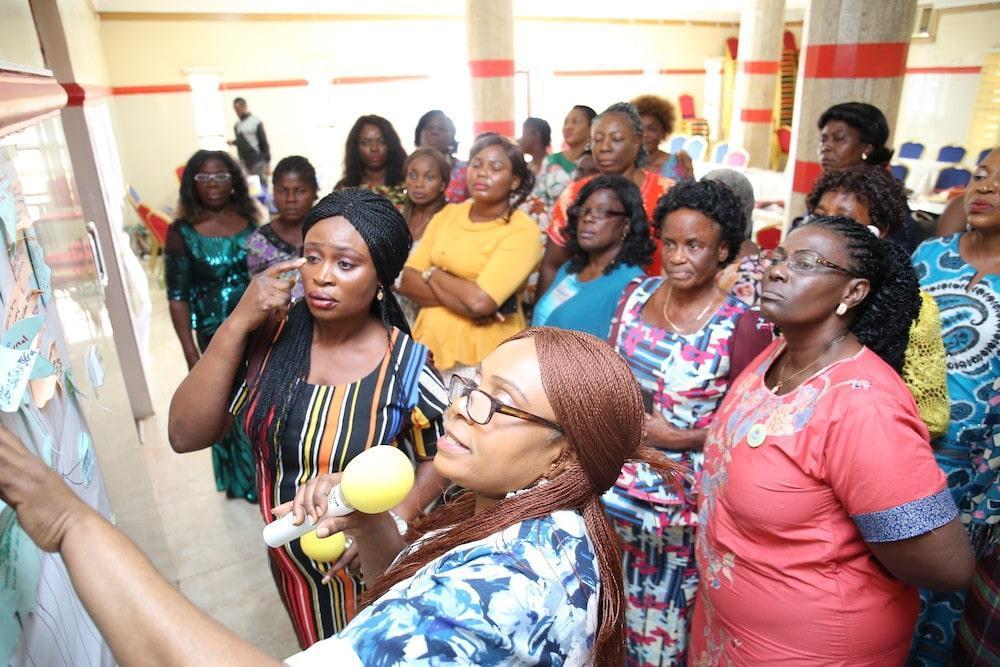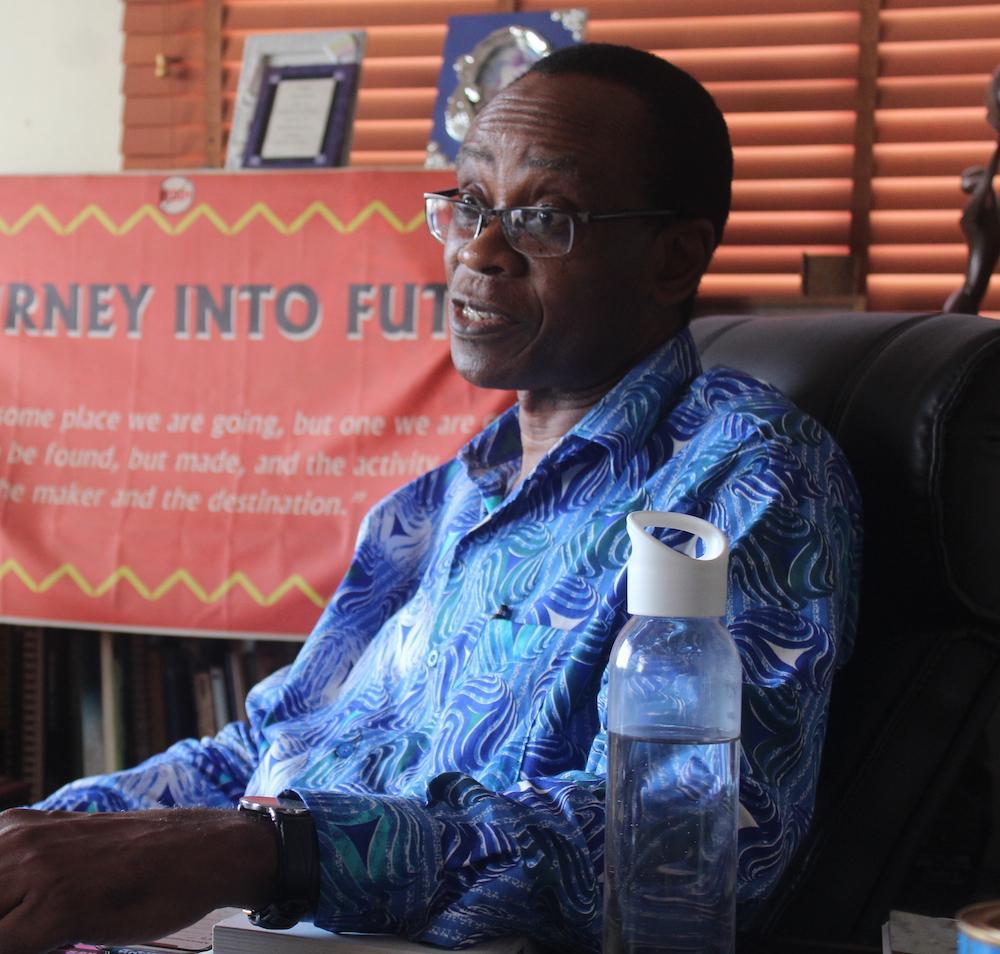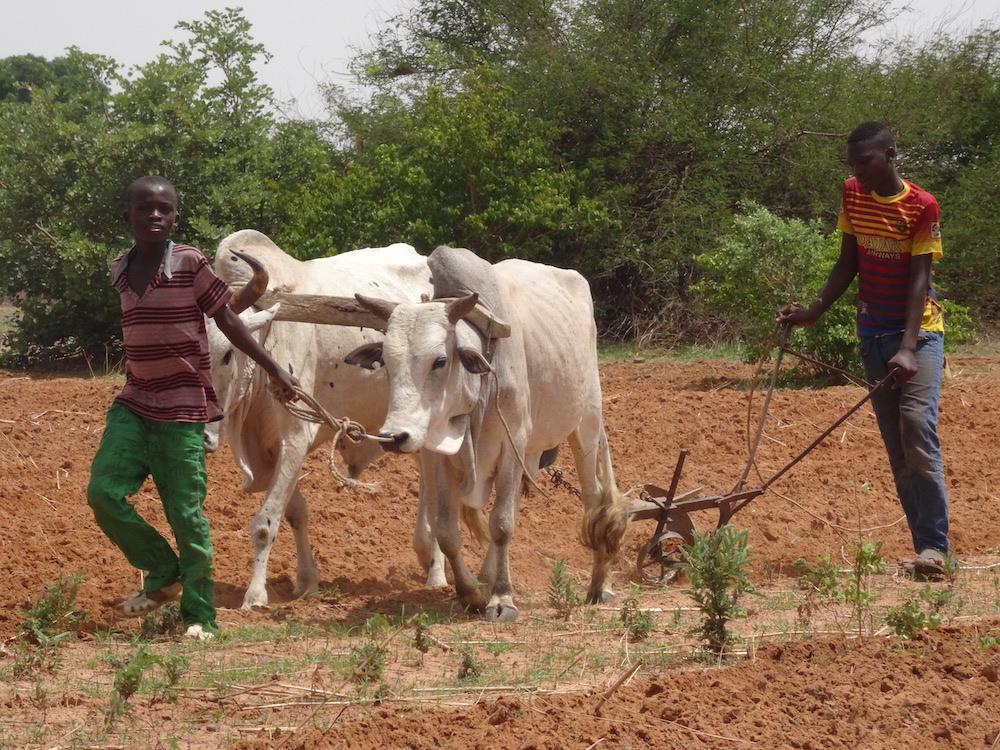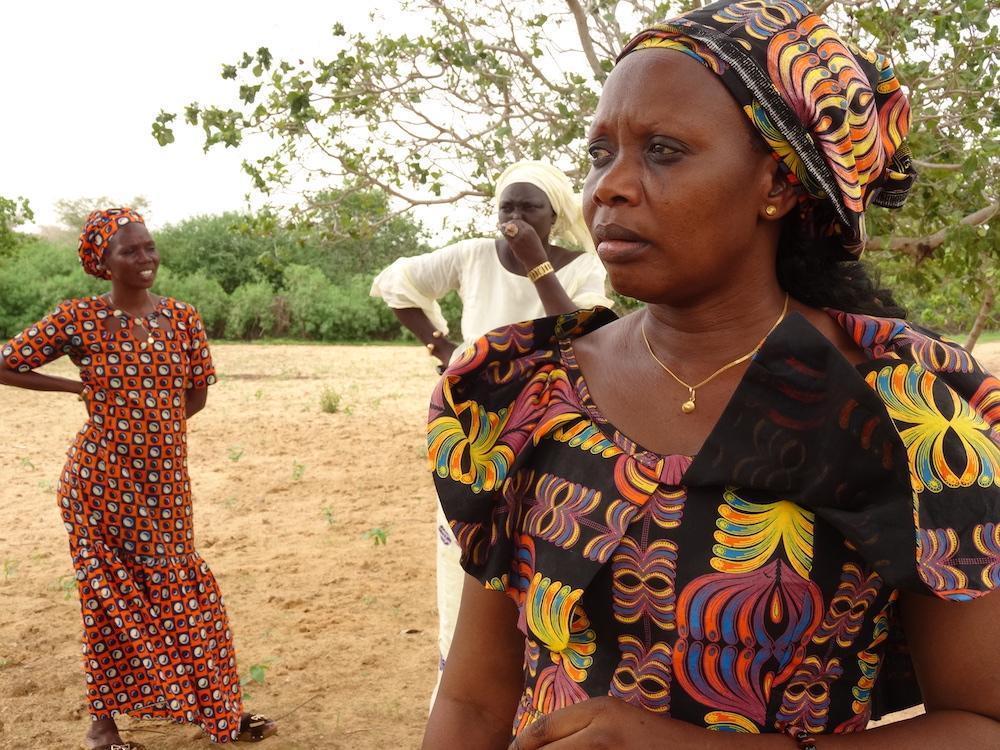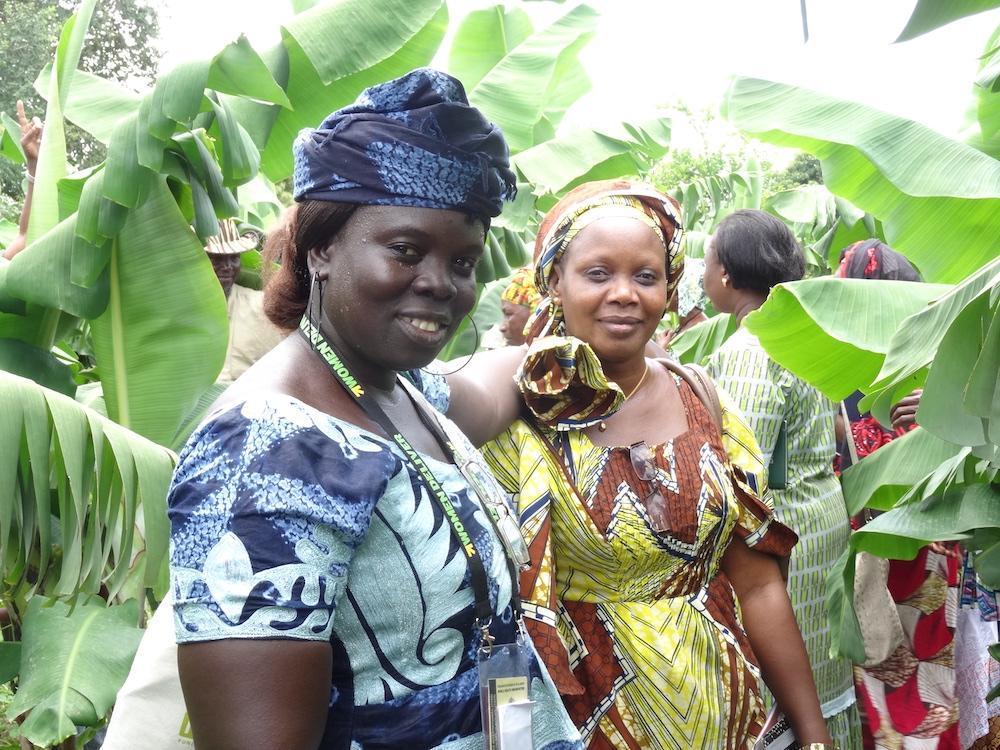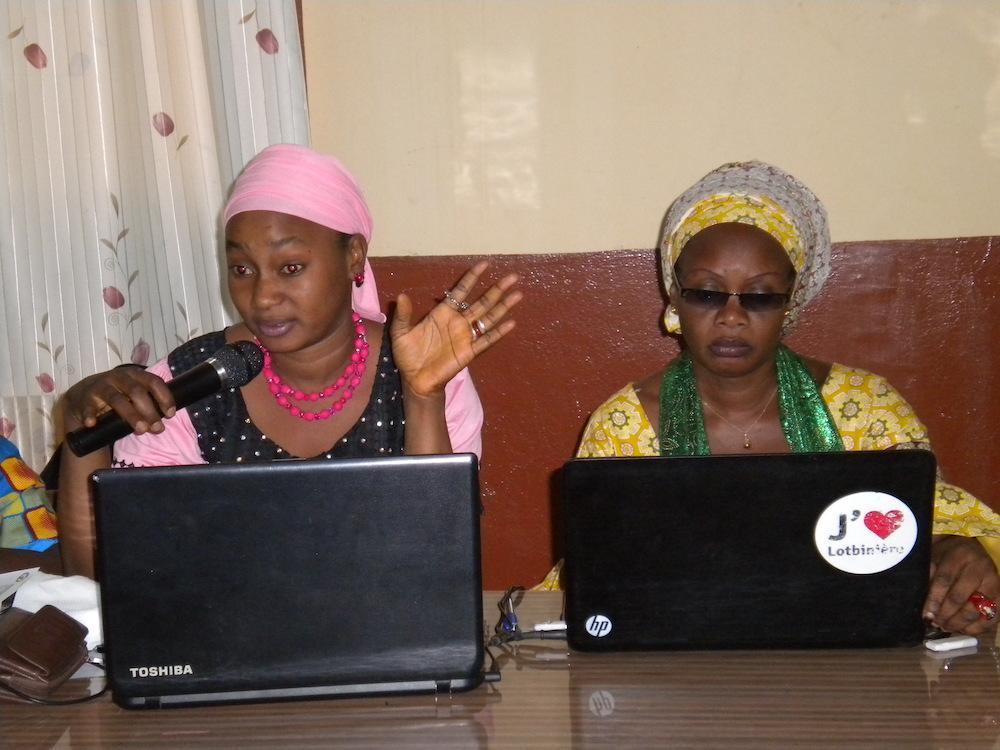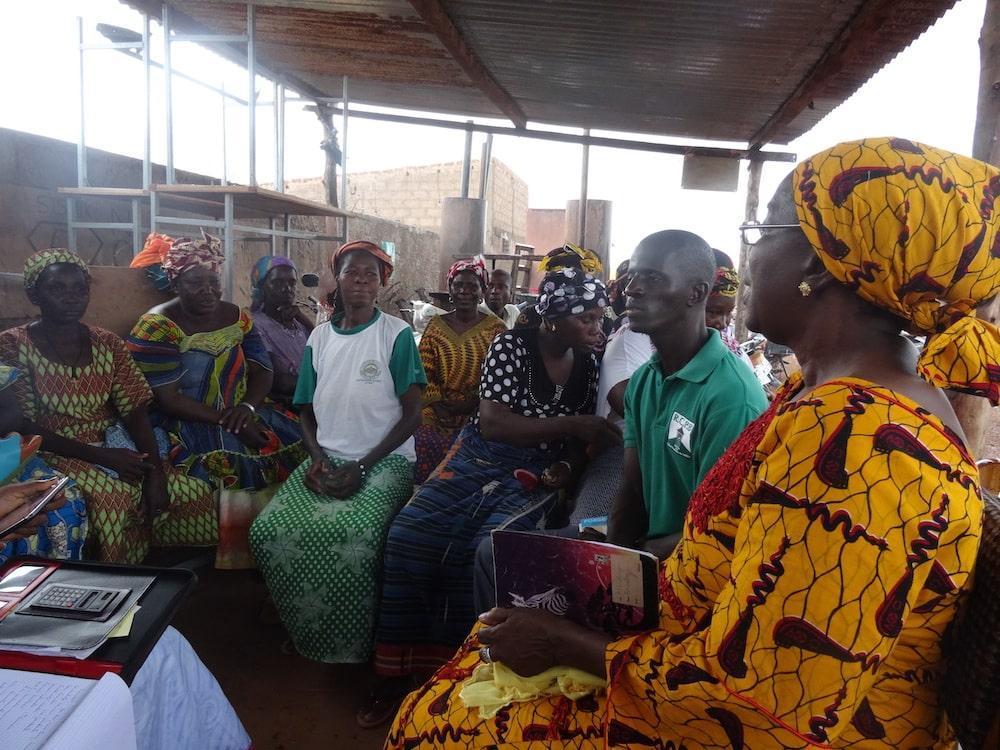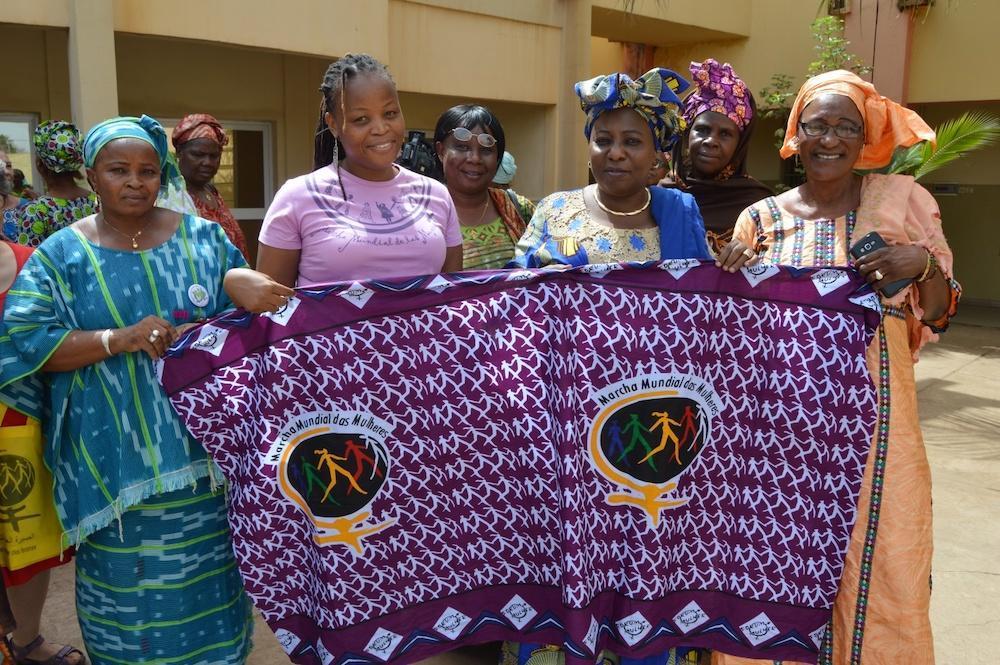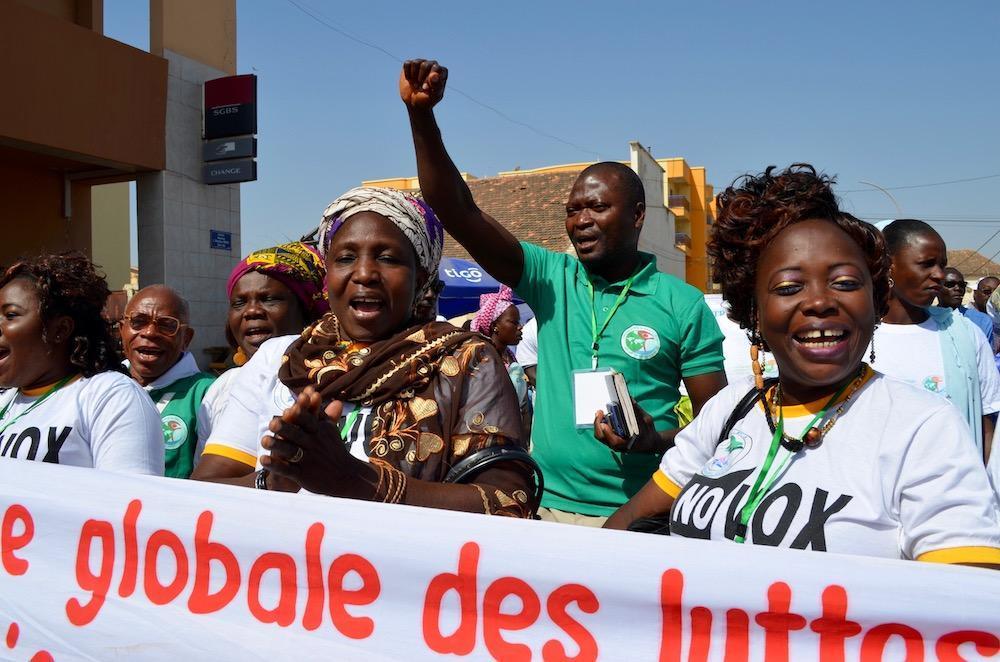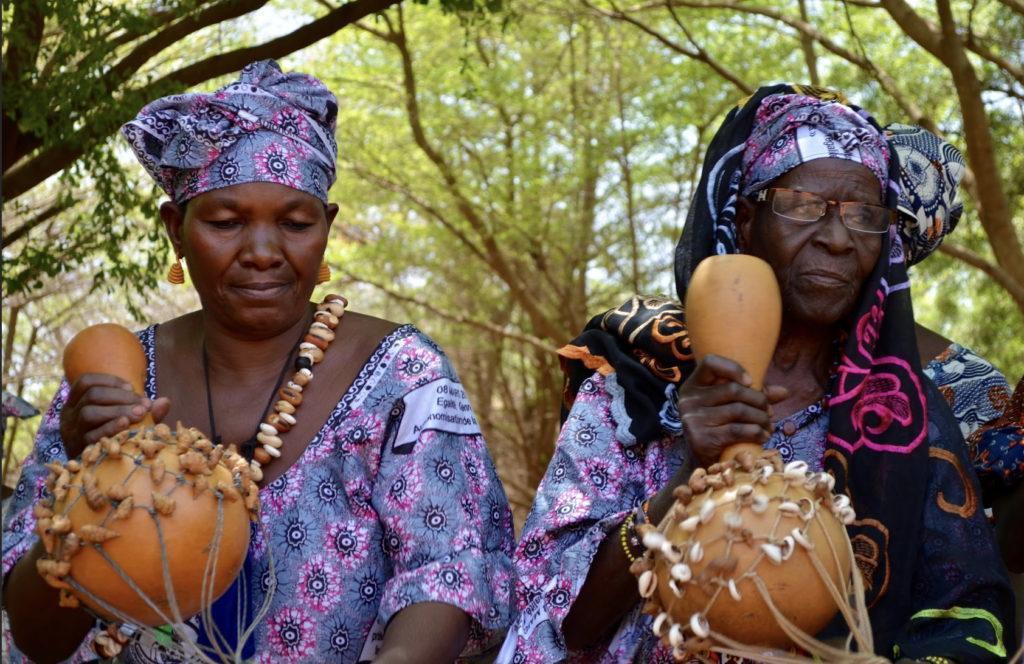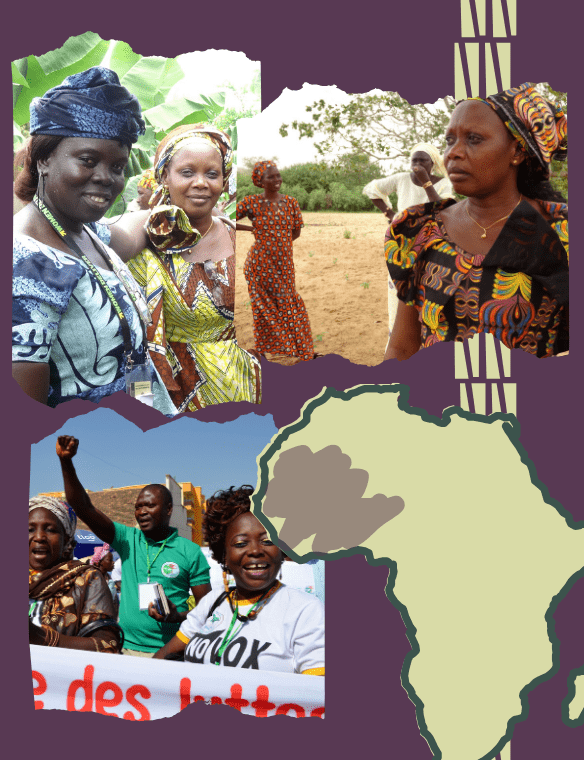
África Occidental
La parte occidental del continente africano rebosa de diversidad. En el norte, las dunas de arena de terracota recortan el horizonte aparentemente interminable del desierto del Sáhara, mientras que, más al sur, el río Níger nutre los ecosistemas sahelianos y de la sabana. Cúmulos de selvas tropicales abrazan la costa atlántica meridional y a los vastos hábitats marinos que viven bajo la superficie del océano. Las personas dedicadas a la agricultura, el pastoreo, la pesca y otras formas de provisión de alimentos a pequeña escala han compartido estos espacios durante milenios, a veces con manifiesta discordia. En la actualidad, el acaparamiento de tierras y agua y la apropiación de semillas del campesinado —a menudo para la agroindustria y los planes de mitigación del cambio climático— ejercen una presión adicional sobre comunidades ya lastradas por los efectos del colonialismo y de otras formas de desarrollo extractivista. Estas cuestiones están imbricadas con conflictos militarizados, en la mayoría de los casos provocados por fuerzas y factores externos. Los movimientos sociales de África Occidental han respondido a estas circunstancias con un enfoque político claro y visiones que incluyen a sectores de poblaciones históricamente aisladas. La soberanía alimentaria y la justicia ecológica —que se persiguen a través de la agroecología, los feminismos de base, la transición justa y otros medios— son proyectos políticos a gran escala que han situado a los movimientos populares regionales en el mapa mundial. A medida que el acaparamiento de tierras y agua y el cambio climático han ido interrelacionándose, también lo han hecho las reacciones políticas de los movimientos centrados en la justicia social. Se trata de proyectos dinámicos y complejos que se despliegan en sentido horizontal y vertical de forma simultánea. Por ejemplo, el campesinado y el sector de pastoreo de Malí, duramente enfrentados entre sí durante largo tiempo, están creando espacios de trabajo conjunto que ayudarán a ambos sectores a nivel local, nacional y transnacional. Mientras tanto, en Nigeria, feministas y ecologistas están creando un movimiento panafricano por la justicia climática desde el delta del Níger, que colma las carencias en cuanto a representatividad y matices regionales de otros espacios más internacionalistas.

